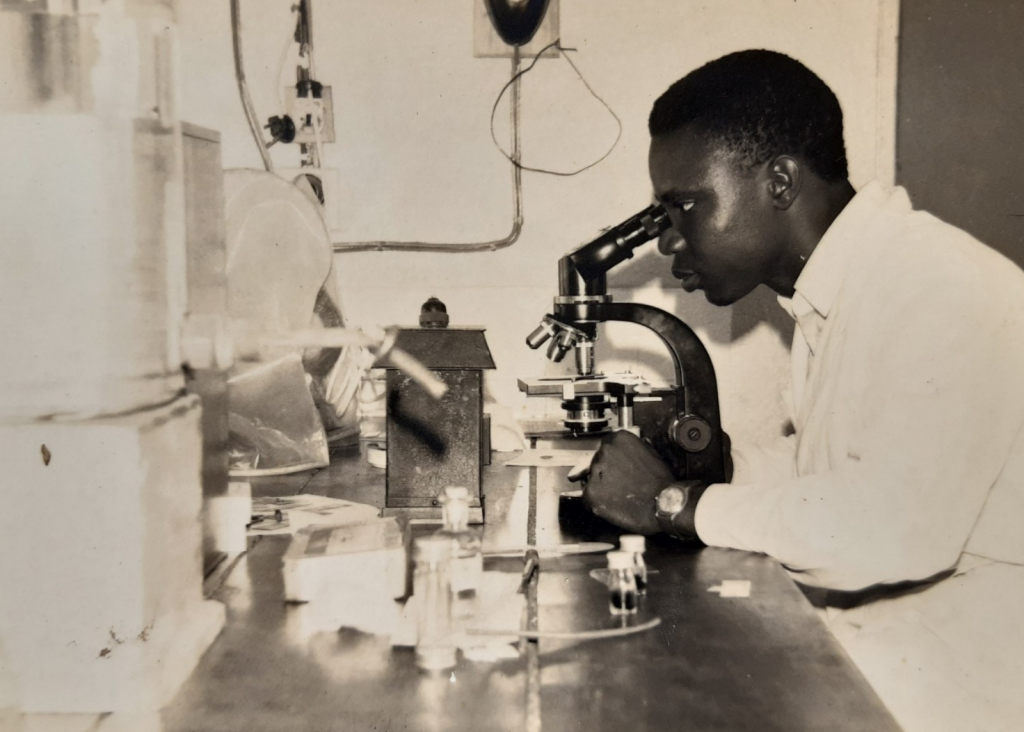COVID-19 is not a war to win without it
This is a time when health care workers are valued most for the work they do, for being the heroes they’ve always been. I know one health service worker, phenomenal in his sense of duty.
Oh! I meant to say I knew him.
He was a passionate community organizer, a teacher and storyteller. I’ll tell you about Dr Ndubuisi Adikema. He took ill and passed away in the wake of the COVID-19 outbreak in Wuhan, China. No, he did not die of the disease.
He didn’t get to see or even hear about the pandemic while he prepared to join the ancestors (as some African traditions believe). But I’m certain that if he had met COVID-19, he wouldn’t miss a chance to campaign that testing, testing, testing was the way to combat the disease.
Like some of us, Ndubuisi dreamed to become a medical doctor in his early career years. When his poor family in a small rural community in the south of Nigeria was unable to fund his education, he took an opportunity to study medical laboratory sciences instead. He attended the South London Graduate University in the UK and returned home to acquire other degrees.
Over time Ndubuisi’s passion for the MedLab profession grew. He would stay up all night writing up research and at day time he bonded with his five daughters, chatting with them about beakers, solutions and anything chemistry.
It made the girls very proud to tell their friends how their Dad was such an amazing Scientist.
As a Lecturer at the Rivers State University of Science and Technology, his students knew him for his principles. He was a disciplinarian. Although Dr Adikema empathized with them for the poorly equipped laboratories in the school which deprived them some practical experience, he required nonetheless that they work hard.
I heard him lament about how the government fails to recognize that medical laboratory scientists are central to qualitative health care. “Can you imagine the difficulty we face procuring common microscopes in a state university?”. He believed the profession deserved better attention.
It’s now been a few years since Dr Adikema retired. It’s been three months since he died. But his worries of the MedLab profession and the education system remain with me.
I observe how the Nigerian health care system (especially the public sector) is designed. Patients are easily exposed to doctors and nurses but it almost seems as if they’re shielded from having direct contact with other healthcare professionals such as the laboratory scientists. I wonder if this is a mere coincidence. This practice may put the patient at risk.
When laboratory tests are requested by doctors, the sample (blood, urine, tissue, stool etc) is sent to the laboratory where the scientists carry out the test(s). It is my view that when patients do not understand what is done and why samples are taken, unethical laboratory practices can thrive.
I think the Medical Laboratory Science Council of Nigeria (MLSCN) urgently needs to create more awareness on the challenges of the practice if COVID-19 is to be conquered. Failure to do this might cause a shortage of manpower if young professionals feel under-valued and decide to switch vocations.
Again, the situation in the world today with the pandemic calls for a rethink in the distribution of resources in the health service sector of developing countries.
If Dr Adikema were here, I imagine that he would advocate for greater investment in equipping laboratories and the re-training of medical laboratory science professionals who acquired more theory than hands-on experience in school.
Dr Ndubuisi Adikema was a Fellow of the Institute of Medical Laboratory Technology (FIAMLT) and a dedicated civil servant. He loved minorities and deprived people.
It is my privilege to reinforce the cause of this great man of substance whom I was blessed to call Father.
He raised me and my six siblings with the humble salary of a full time civil servant in Nigeria. A salary earned from the microscope. Now he is gone and our world is awake to the sacrifices made by past and present health service workers.
I write this to say thank you to all the medical doctors, nurses and health workers whom with their stethoscope are saving lives. Thank you also to those who risk their lives by the hundreds of samples they have to test in the laboratories to determine if a person has contacted the virus or not.
More than ever before I understand why the medical laboratory profession meant so much to my father. And on his behalf today I appeal to the Nigerian government.
Please bring back the microscope!

